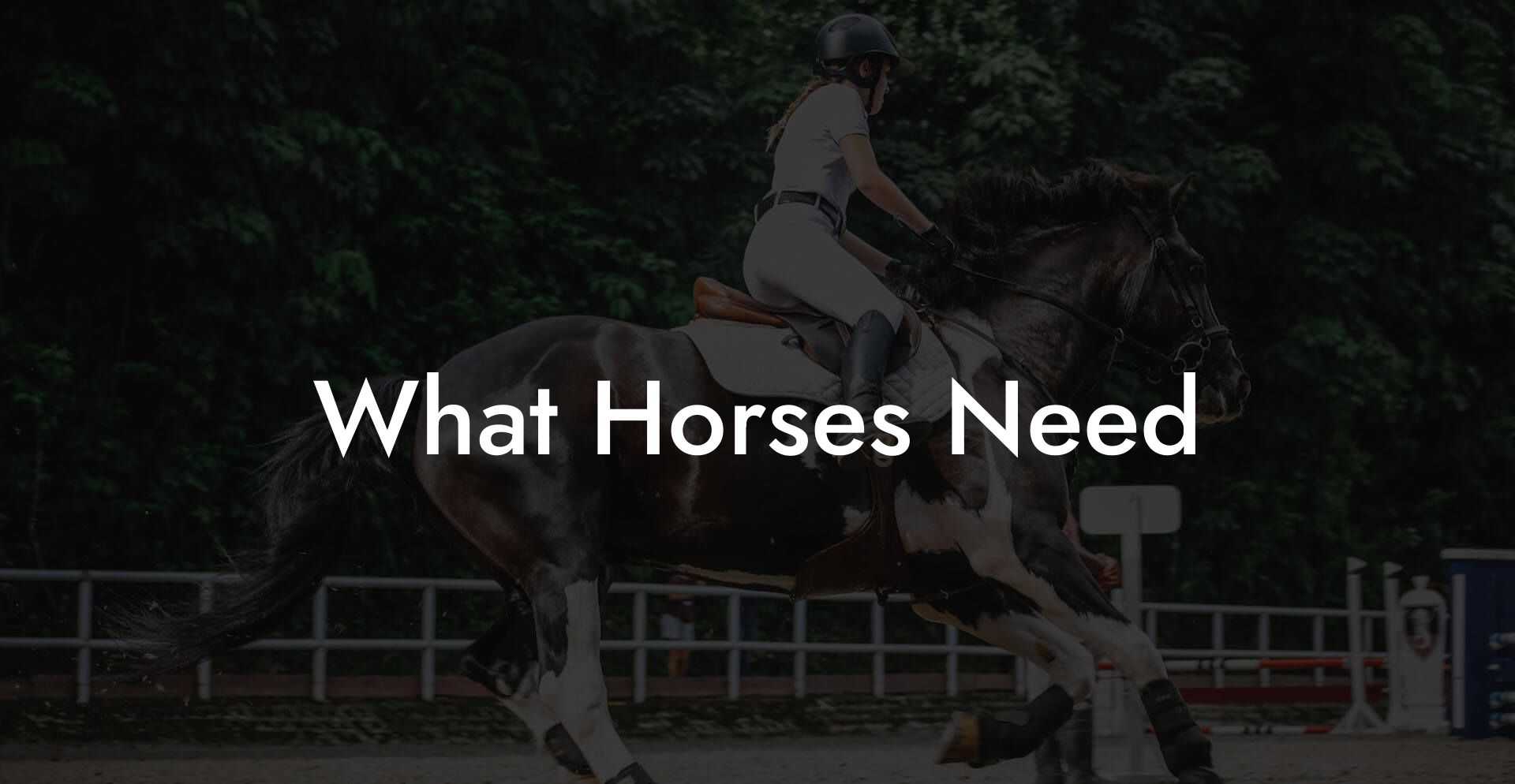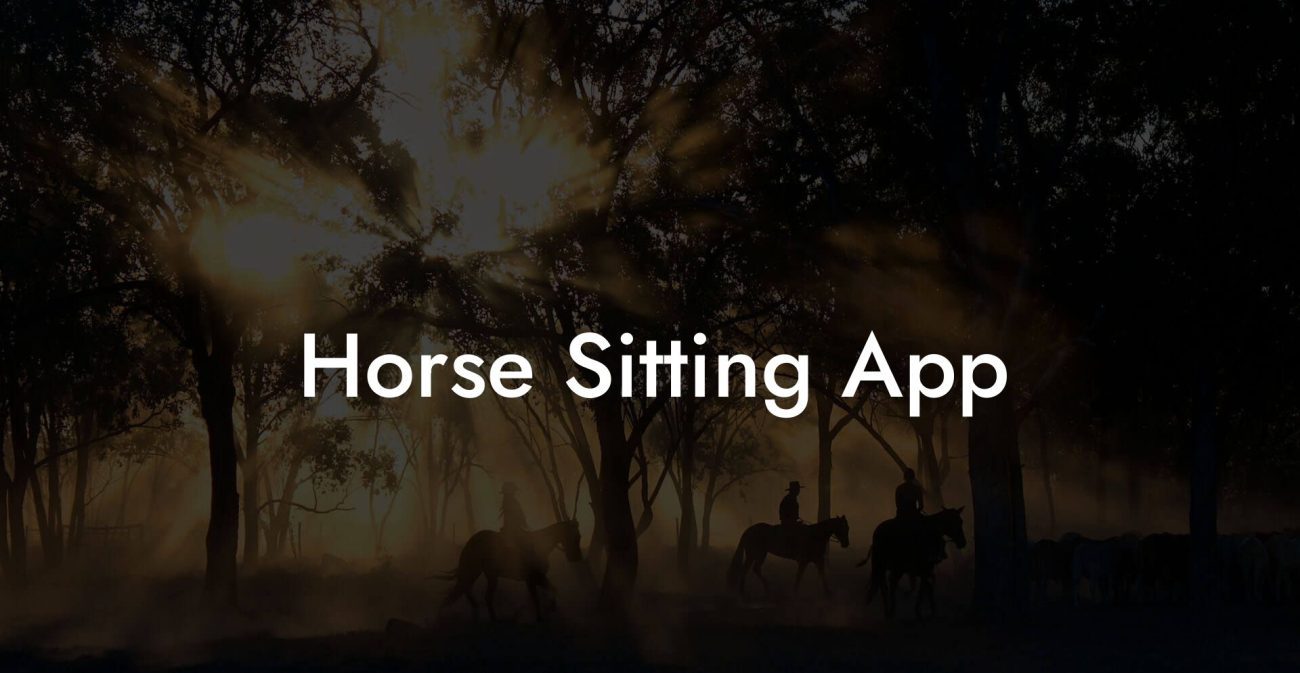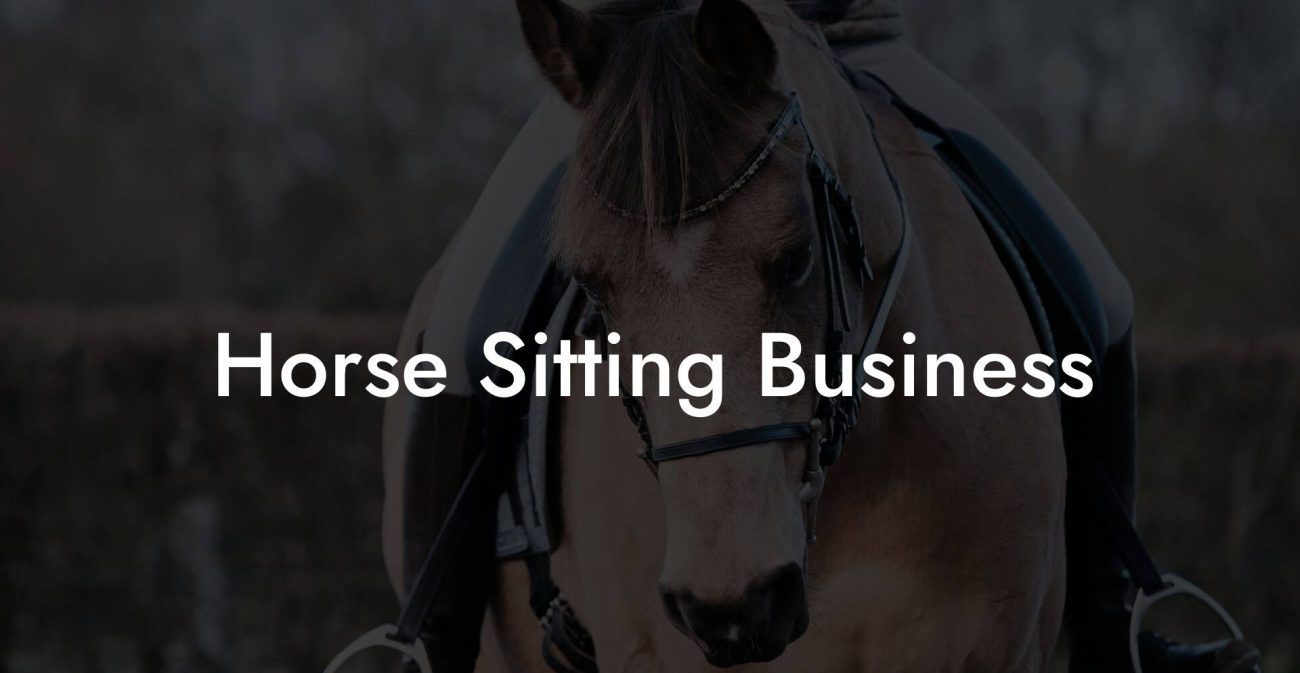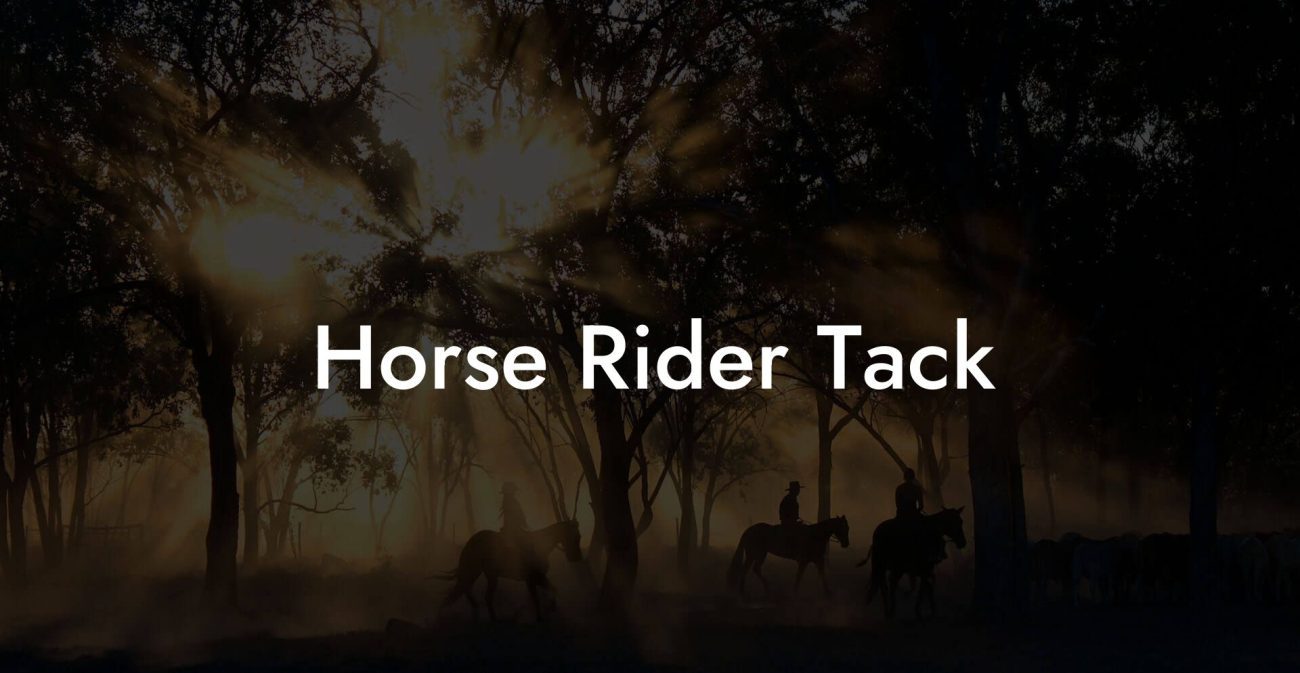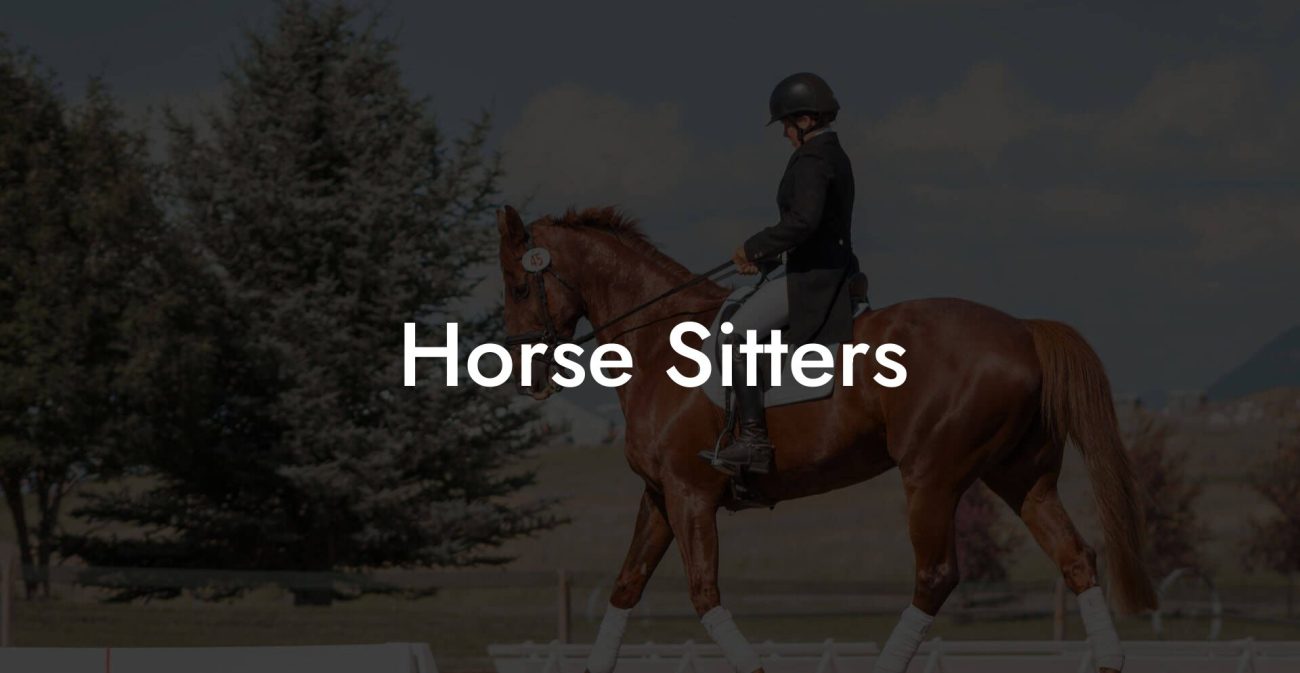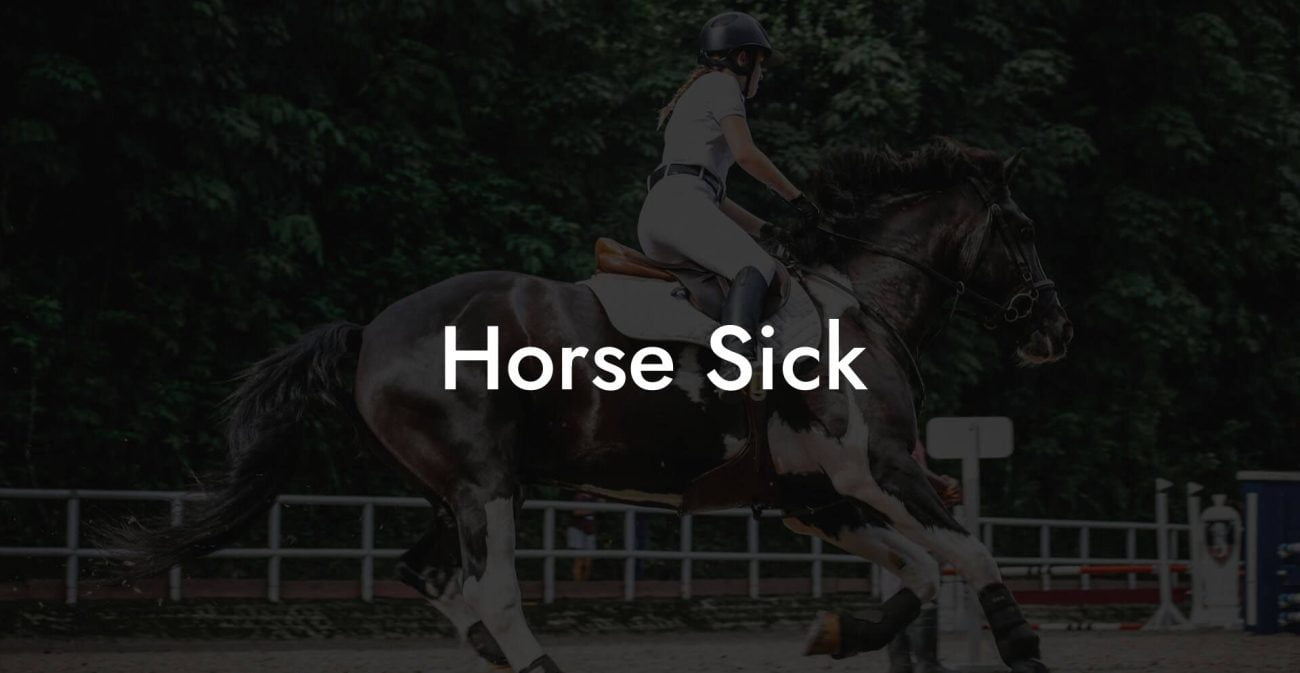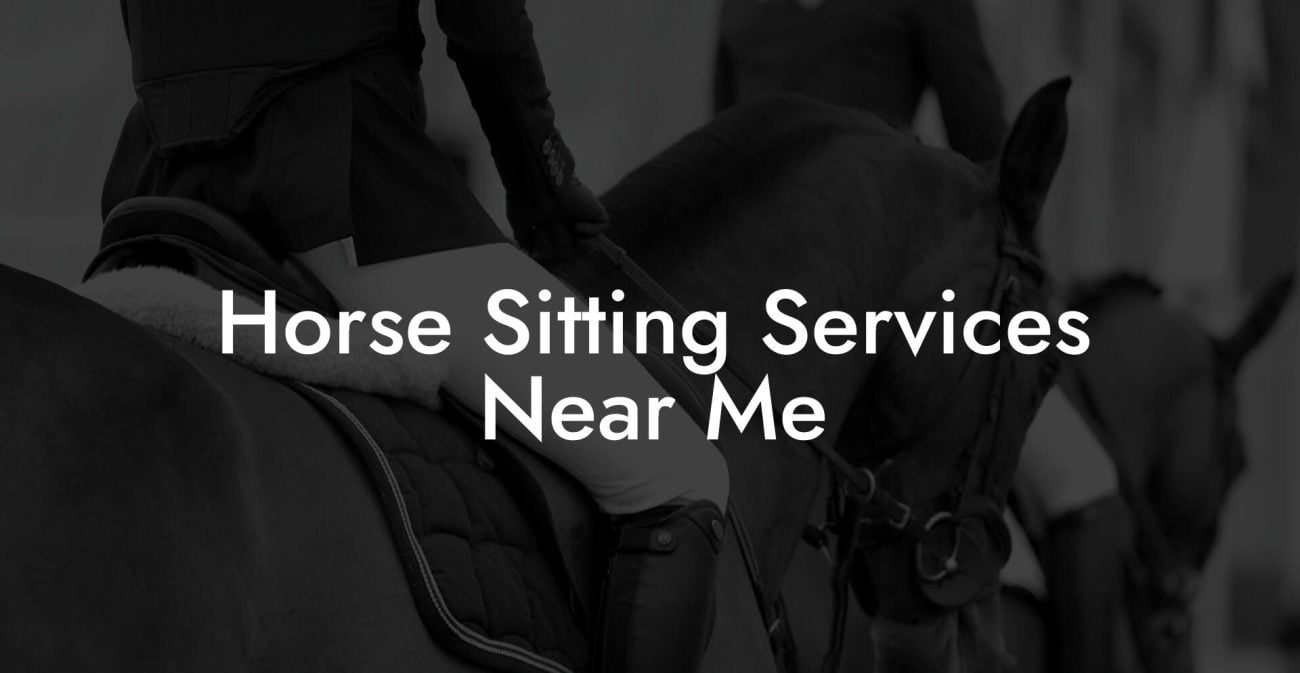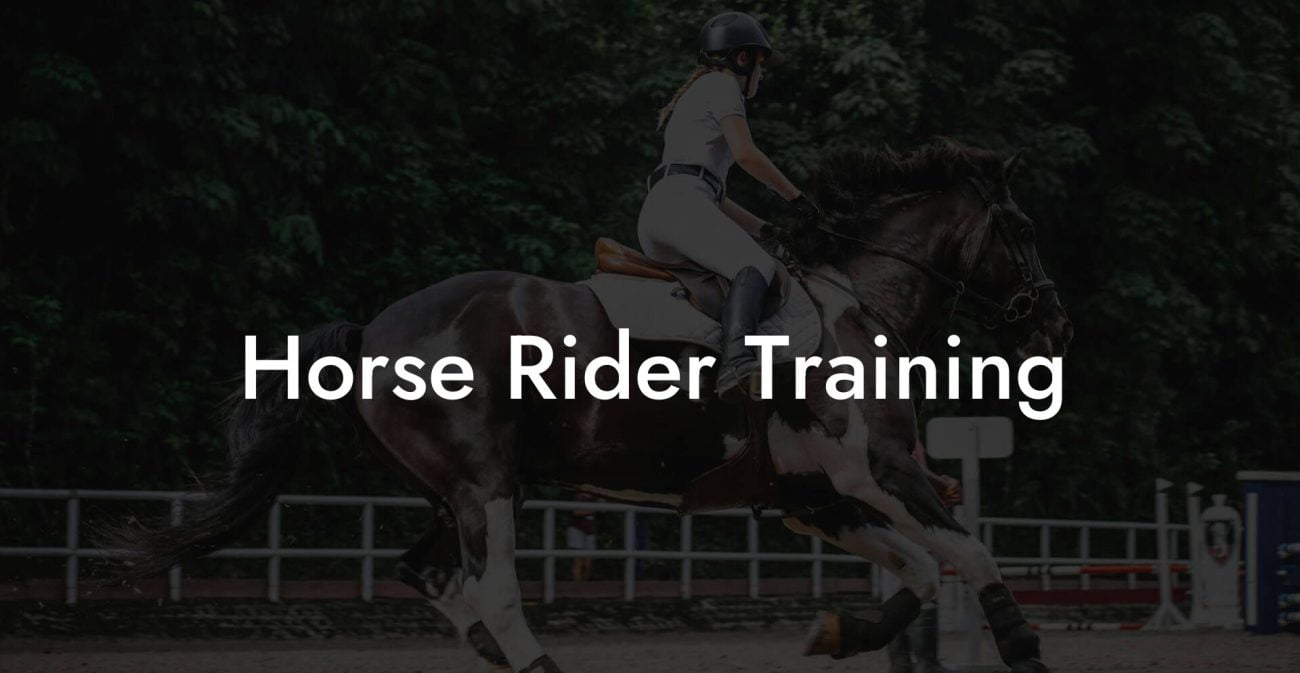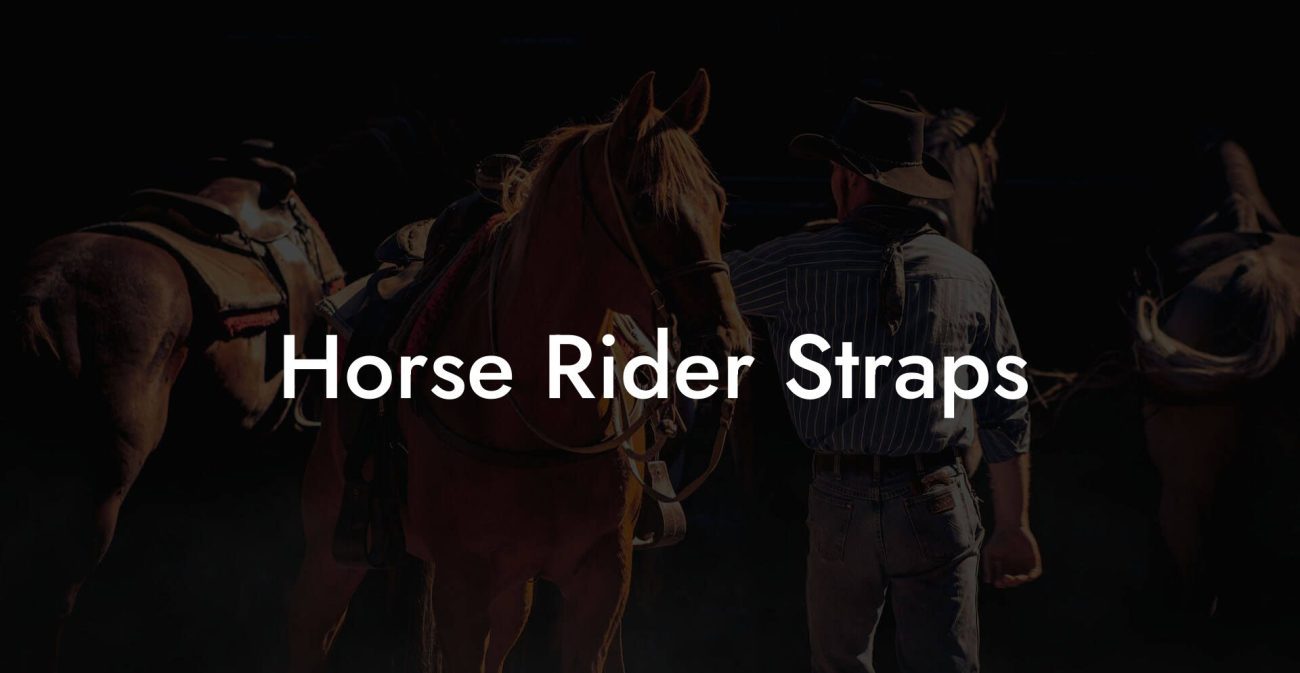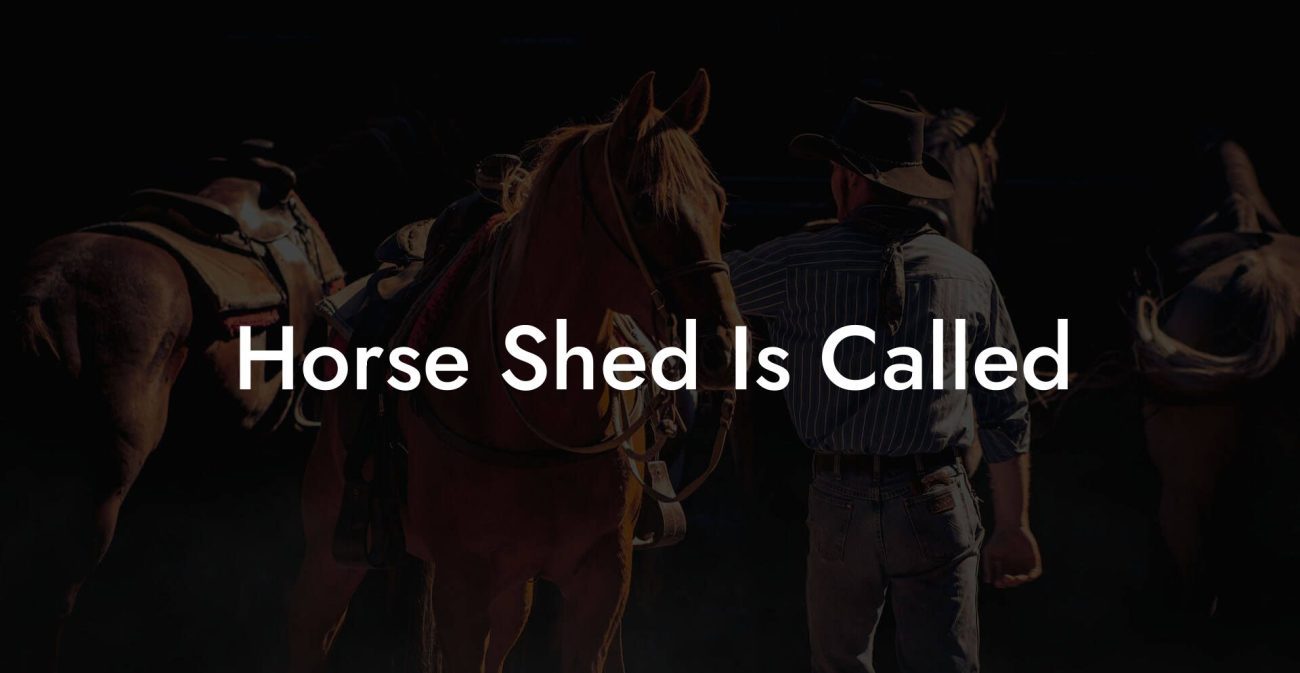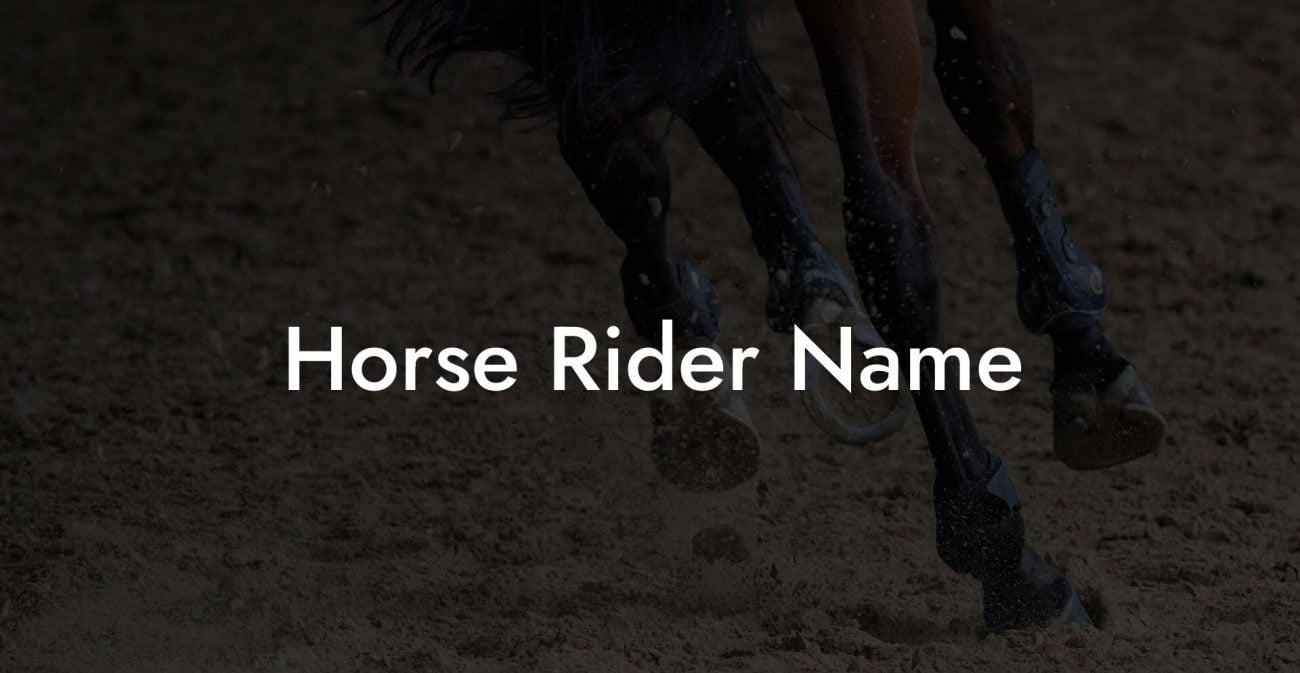Ever wondered what it takes to truly care for one of nature’s most majestic creatures? Horses aren’t just animal companions; they’re dynamic, spirited partners that deserve a life filled with proper nutrition, robust exercise, heartfelt attention, and a safe and enriched environment. In this in-depth guide, we’re diving headfirst into the world of equine care, exploring everything from nutrition and stable management to grooming, exercise, and holistic wellness, all tailored to resonate with the bold, curious spirit of Gen-Z and millennial horse enthusiasts.
Quick Links to Useful Sections
- Understanding What Horses Need
- Feeding Your Horse: More Than Just Oats
- Safe and Sound: Creating the Ideal Shelter and Stable
- Exercise and Socialization: Keeping Hooves Happy
- Grooming, Health, and Veterinary Care
- The Must-Haves for Every Horse Owner: equipment and Accessories
- training and Behavioral Enrichment: The Art of Connection
- Creating a Dynamic, Enriched Environment
- Sustainable and Holistic Horse Care: A Modern Approach
- Resources and Community Support: Your Next Steps
- Frequently Asked Questions About What Horses Need
- Your Journey to Comprehensive Equine Wellness
Understanding What Horses Need
Whether you're a seasoned rider or a newbie with a burgeoning love for horses, understanding what these incredible animals need is the foundation of every successful horse care routine. Horses are not just beasts of burden; they are social animals with distinct personalities and specific care requirements. At their core, a happy horse demands quality nutrition, regular exercise, mental stimulation, shelter that protects against the elements, and lots of routine love and attention.
Modern equine care isn’t a one-size-fits-all approach. With advances in veterinary science, nutrition research, and even stable design, we now recognize that horses benefit from a customized approach. For instance, equine nutrition has evolved beyond simply feeding oats and hay, today, it’s all about balancing macro and micro-nutrients, incorporating supplements when needed, and even understanding the role of probiotics in gut health.
In the world of horses, every detail matters. From the quality of your horse feed to the design of their living space, the path to equine wellness is paved with thoughtful decisions and careful planning. And yes, we're talking about everything your horse needs to live its best life, both physically and mentally.
Feeding Your Horse: More Than Just Oats
Let’s kick things off with the kitchen, because feeding your horse isn’t as simple as tossing a handful of oats in the stall. Like us, horses need a balanced diet to stay energetic, healthy, and ready to gallop into adventure. A horse's diet is the cornerstone of its overall health, impacting everything from its coat shine and hoof strength to its digestion and energy levels.
The foundation of any good equine diet starts with high-quality forage. Horses are natural grazers, so the bulk of their nutrition should come from lush, nutrient-dense hay or pasture. When the grass is green and plentiful, it’s a horse’s buffet, rich in fiber, essential vitamins, and minerals. For those in climates or seasons where pasture isn’t an option, ensuring that hay is of premium quality becomes even more critical.
But it doesn't stop there. Many horse owners supplement their animals’ diets with grains, commercial feeds, and even modern nutraceuticals. Grain mixes can provide extra energy, particularly for performance horses that need that additional boost before a long day of riding. However, it’s important to avoid overfeeding carbohydrates, which can lead to digestive issues like colic or laminitis. And yes, your horse’s water needs are just as vital, fresh, clean water must always be available, as dehydration can rapidly diminish a horse’s health and performance.
In addition to forage and grains, consider adding nutritional supplements to support joint health, coat condition, and overall vitality. Supplements like omega-3 fatty acids, probiotics, and specific vitamins can make a world of difference. Always consult with an equine nutritionist or veterinarian to tailor a diet plan that suits your horse’s unique lifestyle and needs.
In integrating cutting-edge nutritional science with time-tested feeding practices, you create the ideal dietary plan that fuels not just the body but also the spirit of your equine friend.
Safe and Sound: Creating the Ideal Shelter and Stable
If the saying "home is where the heart is" applies to humans, it definitely applies to horses. A safe, well-ventilated, and clean shelter is a non-negotiable aspect of horse care. While horses are known for their graceful gallops in the open fields, they also deserve a sanctuary where they can rest, recuperate, and escape extreme weather.
When designing or choosing a stable, think about the essentials: durability, cleanliness, and security. A top-notch stable should provide:
- Ample Space: Overcrowding can lead to stress and injury. Horses need room to stretch, turn around, and move freely.
- Protection from Weather: Whether it’s a blazing summer sun or a chilly winter storm, proper shelter protects your horse from harsh elements.
- Ventilation: Good airflow reduces the buildup of ammonia from urine and hay dust, creating a healthier environment for your horse.
- Safety Features: Non-slip flooring, secure doors, and appropriate lighting ensure a safe haven for your horse, minimizing the risk of injury.
And let’s not forget the importance of keeping your stable clean. Regular mucking out, disinfecting surfaces, and providing fresh bedding are crucial for preventing the spread of disease and ensuring your horse feels like royalty.
Modern stable designs often integrate technology, such as climate control and automated feeding systems, to further enhance the comfort and health of horses. Nonetheless, a little human touch goes a long way in making your horse feel at home.
Exercise and Socialization: Keeping Hooves Happy
Horses are built for movement. Their strong, muscular bodies are designed to gallop, trot, and canter, so providing regular exercise isn’t optional, it’s essential. But exercise for a horse isn’t just about keeping fit; it’s about mental stimulation, building social bonds, and even preventing behavioral issues.
A healthy exercise regimen for your horse should include:
- Daily Pasture Time: Pasture time not only gives horses much-needed physical activity but also offers essential social interaction. Horses are herd animals who thrive on companionship.
- Structured Workouts: Whether you’re trail riding, engaging in dressage, or simply practicing rein work, structured exercise helps build strength, flexibility, and coordination.
- Cool-Down Sessions: Just like any athlete, horses benefit from cool-down routines that help prevent muscle stiffness and injuries after a workout.
Incorporating a mix of leisurely grazing, structured exercise, and even mental games in the paddock can stave off boredom and keep your horse mentally alert. Remember, a bored horse can quickly develop unwanted habits; a happy, well-exercised horse is one that’s less likely to engage in destructive behaviors.
So, whether you’re planning a long trail ride or setting up fun activities in the paddock, regular physical and mental exercise is a must for equine wellness.
Grooming, Health, and Veterinary Care
Grooming is one of the most rewarding activities in horse care, it’s not just about keeping your horse looking fab; it’s a vital part of maintaining overall health. Regular grooming helps remove dirt, sweat, and debris, and it also gives you the chance to monitor your horse for any signs of injury or illness.
Here’s what makes up a comprehensive grooming routine:
- Brushing and Bathing: Regular brushing helps maintain a shiny coat by distributing natural oils, while occasional baths (using equine-friendly shampoos) remove stubborn muck and allergens.
- Hoof Care: Horses’ hooves require constant attention. Routine cleaning, picking out debris, and timely trimming by a qualified farrier are essential for preventing lameness and other hoof-related issues.
- Health Checks: Your horse’s skin, muscles, and joints all benefit from a thorough visual and hands-on check. Early detection of any lumps, sores, or unusual swelling can prevent bigger health problems down the line.
- Dental Care: Just like humans, horses need regular dental checkups. Dental issues can lead to difficulties in eating and serious digestive problems, so don’t skip those vet appointments.
Regular visits from a trusted veterinarian are another cornerstone of equine care. Vaccinations, deworming schedules, and routine health screenings ensure that your horse is protected against common ailments and injuries. With the right combination of grooming and professional care, you’ll be investing in your horse’s long-term health and happiness.
Remember, every minute you spend grooming your horse not only improves its appearance but also strengthens the bond between you two, a win-win for both of you.
The Must-Haves for Every Horse Owner: equipment and Accessories
Now, let’s talk gear. In the world of equine care, having the right equipment is almost as important as knowing what care looks like. From tack and riding gear to specialized grooming kits and stable maintenance tools, the market is bursting with accessories designed to make horse care more efficient and fun.
Some essential tools every horse owner should consider include:
- Tack and Riding Equipment: A well-fitted saddle, bridle, and other riding accessories are critical, for both safety and comfort during rides. The right tack can even improve your horse’s performance.
- Grooming Kits: Invest in quality brushes, combs, hoof picks, and sweat scrapers. A dedicated grooming kit ensures you’re always ready for a thorough, spa-like session with your horse.
- Stable Management Tools: From bedding and hay nets to water buckets and automatic feeders, these tools reduce daily stress and create a comfortable environment.
- Protective Gear: Don't overlook items such as fly masks, blankets, and leg wraps, especially if you live in areas with extreme weather conditions or pests that could irritate your horse.
Investing in quality gear not only boosts your horse’s comfort and safety but also enhances your overall experience as a caregiver. Remember, your horse is a prized partner in your adventures, giving them the best tools is just another way to show you care.
training and Behavioral Enrichment: The Art of Connection
Who said training has to be boring? Equine training is as much an art as it is a science, a creative journey where you learn to communicate with your horse on a language all your own. Training isn’t about strict drills or harsh corrections; it’s about building trust, fostering mutual respect, and sometimes even sharing a few laughs along the way.
A well-rounded training program should address both basic obedience and advanced skills, adapting to the personality and temperament of your horse. Here are some strategies to consider:
- Positive Reinforcement: Reward-based training is one of the most effective methods for horses. Whether it’s a carrot treat or verbal praise, positive reinforcement builds a strong bond and encourages good behavior.
- Consistent Routines: Horses thrive on consistency. Establish a daily routine that incorporates training sessions, playtime, and ample rest, ensuring your horse knows what to expect.
- Problem-Solving Games: Incorporate puzzle-like challenges and interactive games in the paddock. These activities stimulate your horse’s brain and provide a welcome change from the usual routine.
- Social Learning: Horses are herd animals, and they learn a lot by watching each other. Social training sessions can help reinforce positive behaviors and boost overall confidence.
Embrace a training style that’s as dynamic and fun as your horse is. Use each session as an opportunity not just to instill discipline, but to connect, laugh, and grow together. A well-trained horse is a happy horse, and a strong bond is the ultimate reward.
Creating a Dynamic, Enriched Environment
Beyond the basics of food, shelter, and exercise, horses need mental stimulation and an enriched environment to truly flourish. Think of it as creating a living, breathing playground that not only supports physical health but also sparks curiosity and engagement.
Consider adding the following elements to your horse’s world:
- Varied Pastures: Rotating grazing areas that include different types of grasses and natural obstacles keep your horse engaged and active.
- Treat Trails and Interactive Toys: Place hay nets in unexpected spots or rotate through equine puzzles and toys that challenge your horse’s cognitive skills.
- Shade and Water Features: Simple elements like trees for shade, water troughs, or even a small splash pad can make a huge difference in keeping your horse cool and entertained.
- Quiet Zones: Establish calm areas where your horse can retreat if they need to unwind. A balance of activity and rest ensures that your horse’s mind doesn’t get overstimulated.
A thoughtfully designed environment not only keeps your horse physically agile but also nurtures its mental well-being. Horses in enriched surroundings tend to exhibit less stress and show a natural inclination to explore and interact, leading to a happier, healthier animal.
Sustainable and Holistic Horse Care: A Modern Approach
The trend towards sustainability is not exclusive to human lifestyles, it's transforming equine care as well. Modern, holistic horse care practices embrace eco-friendly stable management, natural feed supplements, and even green cleaning practices that minimize environmental impact while maximizing your horse’s health.
Think about integrating practices like:
- Organic Feed and Pasture Management: Opt for organically grown forage free of pesticides, ensuring that your horse receives a diet free from harmful chemicals.
- Eco-Friendly Bedding and Stable Cleaners: Choose materials that are both comfortable for your horse and kind to the environment.
- Sustainable Water Practices: Incorporate water recycling and conservation measures in your stable design.
- Holistic Supplements: Explore herbal supplements and holistic remedies that promote natural healing and overall vitality.
Embracing sustainability doesn't mean compromising on quality, it means reimagining care in a way that honors both your horse and the planet. This approach not only fosters equine wellness but also positions you as a forward-thinking, socially responsible horse owner.
Resources and Community Support: Your Next Steps
No great journey of horse care is ever taken alone. There’s a vibrant network of communities, experts, and online resources dedicated to offering support, advice, and inspiration. From local horse clubs and equestrian meetups to online forums and social media groups, tapping into a community can help you stay updated on the latest trends and breakthroughs in equine care.
Explore these avenues to further empower your journey:
- Equine Associations and Clubs: Join local or national horse associations to network with fellow horse enthusiasts, attend seminars, and partner on community initiatives.
- Online Forums and Blogs: Follow thought leaders, seasoned veterinarians, and successful horse owners who share their insights and experiences. Platforms like YouTube can be treasure troves of DIY tips and tutorials.
- Social Media Groups: Engage with Gen-Z and millennial communities on Instagram, TikTok, and Facebook groups where real stories, fresh strategies, and authentic advice on horse care are shared daily.
- Workshops and Webinars: Sign up for virtual or in-person workshops that focus on equine nutrition, stable design, and holistic wellness. These platforms not only educate but also inspire innovative care practices.
- Local Veterinary and Equine Nutrition Experts: Develop a trusted network of professionals who can provide tailored advice and assist in creating a personalized care plan for your horse.
Taking the next step in your equine care journey means stepping into a community that shares your passion. Foster connections, ask questions, and use the wealth of resources available to build a support system that not only enhances your horse care routine but also makes it a fun, collaborative adventure.
Frequently Asked Questions About What Horses Need
Here are some of the top questions that many horse owners ask when diving into the world of equine care:
1. What are the most important dietary needs of a horse?
A balanced diet for a horse primarily consists of high-quality forage (like hay or pasture), supplemented with grains or concentrates when needed. Fresh water, proper minerals, and vitamins complement your horse’s overall nutritional requirements.
2. How often should I clean my horse’s stable?
Regular cleaning, ideally on a daily basis for quick pick-up of manure and old bedding, with a deeper clean weekly, is essential to maintain a hygienic and safe environment.
3. Can horses benefit from supplements?
Yes. Depending on your horse’s age, workload, and health issues, supplements like omega-3 fatty acids, joint supports, and probiotics can be beneficial. Consult with your veterinarian for personalized recommendations.
4. How much exercise does a horse need?
Horses generally need a combination of daily pasture time and structured exercise. The amount varies by age, breed, and health, but regular movement is key to preventing boredom and physical ailments.
5. What are some eco-friendly practices in horse care?
Sustainable practices include using organic feed, incorporating eco-friendly bedding and cleaning agents, and implementing water conservation measures in your stable design.
6. How important is grooming for my horse’s well-being?
Grooming is vital not only for maintaining a healthy coat and body but also for early detection of health issues and strengthening the bond between you and your horse.
7. What equipment must every horse owner have?
Essential equipment includes proper tack (saddle, bridle), quality grooming kits, stable management tools (bedding, water buckets), and safety gear like fly masks and blankets.
8. How can I provide mental stimulation for my horse?
Offering an enriched environment with varied pastures, interactive toys, and social opportunities can keep your horse mentally sharp and prevent stress-related behaviors.
9. Why is regular veterinary care important for horses?
Routine veterinary check-ups ensure early detection of illnesses, proper vaccination, dental care, and overall monitoring of your horse’s well-being.
10. Where can I learn more about modern horse care?
Look for resources from equine associations, reputed online blogs, and social media groups dedicated to horse care. Local workshops and webinars also offer up-to-date insights.
Your Journey to Comprehensive Equine Wellness
Caring for a horse is an ongoing journey, a blend of science, art, and love. From the nourishment provided by a carefully balanced diet to the thoughtful design of a safe, comfortable stable, every element plays a crucial role in ensuring your horse's well-being. When you take the time to understand exactly what horses need, from high-quality forage and regular vet checkups to mental stimulation and community support, you are investing in a life of vibrant health and joyful partnership.
Embrace every opportunity to connect with your horse on a deeper level. Whether it’s through daily grooming sessions that double as quality bonding time or thoughtful training routines that foster trust and playfulness, the care you provide echoes in every stride, every neigh, and every shared moment of calm.
In a world where every detail matters, your commitment to equine wellness sets the stage for an enriched life filled with adventure, vitality, and heartfelt connection. Let this guide be your launching pad, empower yourself with knowledge, experiment with new approaches, and build the future you and your horse deserve.
Step into this vibrant field of modern horse care with confidence and creativity. With every meal prepared, every stable cleaned, and every playful gallop in the pasture, you’re not just meeting your horse’s needs, you’re creating an environment where joy, health, and a shared spirit of adventure can truly flourish.

